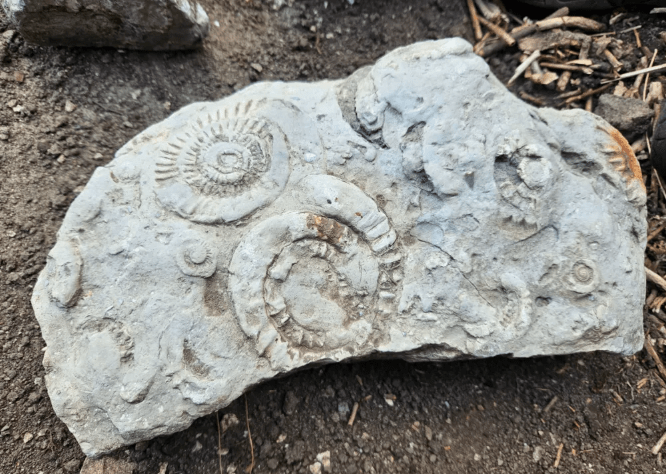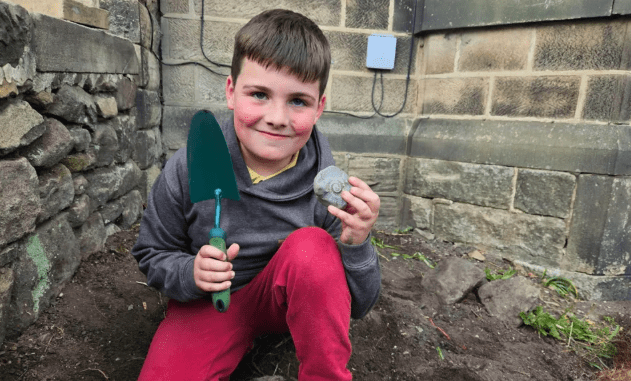In a remarkable discovery, a young fossil enthusiast has uncovered ancient remains dating back 140 million years, right in his own front garden.
Seven-year-old Elliott had only recently moved into his new home in Matlock, Derbyshire, when he stumbled across the prehistoric treasure. While helping with garden work, he began digging out limestone rocks that had surfaced. What he found inside astonished both him and his family.
Cracking open the stones revealed an incredible secret — they were filled with fossils of creatures from the Jurassic period.
Speaking about his extraordinary find, Elliott said: “I love fossils. It made me really happy we just found it. When I look at one of my fossils, it makes me really interested and I think, how many more dinosaurs can I find? Finding fossils is really inspiring and I want to do it more. They look so cool.”
His mother, Gemma, 42, shared Elliott’s excitement, although with some mixed feelings about the garden digging: “He’s very excited – I’m not sure we like digging up the garden so much. But it’s very exciting what he’s finding, I’m very proud of him.”
The family’s discovery has sparked widespread interest, drawing expert opinions from the scientific community.
Dr Susannah Lydon, a palaeontologist from the University of Nottingham, explained that fossils might be more common in Britain than many assume.
“In the UK, most of our fossils are hidden under vegetation, which means the rocks they’re in aren’t at the surface or getting revealed by erosion,” she said. “The good places tend to be where rocks are eroded, which tends to be the coast.”

Although Matlock itself is rich in fossil-bearing rock, Dr Lydon believes the specimens Elliott found were likely transported there by human activity. She suggested they may have originated from Dorset, possibly brought by collectors or during construction work.
The fossils, dated between 140 and 180 million years old, include ammonites — ancient spiral-shelled molluscs that once thrived in Jurassic seas.
For those keen to embark on their own fossil-hunting adventure, Dr Lydon offered some encouraging advice.
“The joy of fossil hunting is finding something nothing else has seen for millions of years. It gives you a view through all those years,” she said.
Importantly, she stressed that no specialised equipment is necessary. A good eye, the right location, and a bit of patience are all that’s needed.
For beginners, she recommended joining a guided tour to learn about rock formations and fossil spotting. Cliffs, especially after storms, are among the best places to find newly exposed fossils.
Elliott’s incredible discovery serves as a thrilling reminder of the ancient wonders still hiding beneath our feet. Whether you’re a seasoned collector or a curious beginner, Britain’s prehistoric past might just be waiting for you to uncover it, perhaps even in your own back garden.






